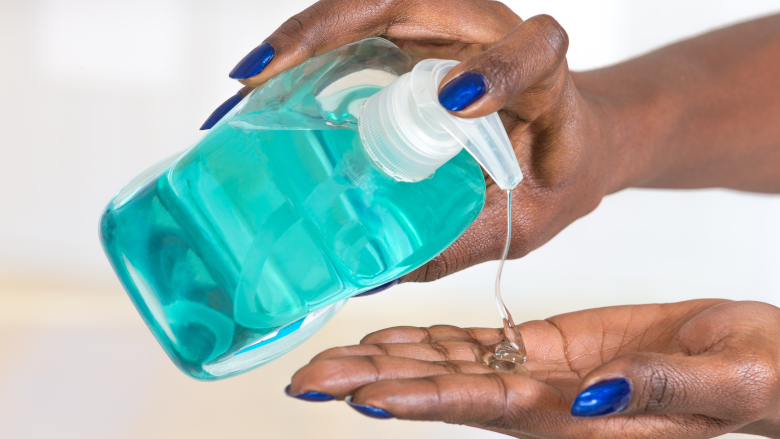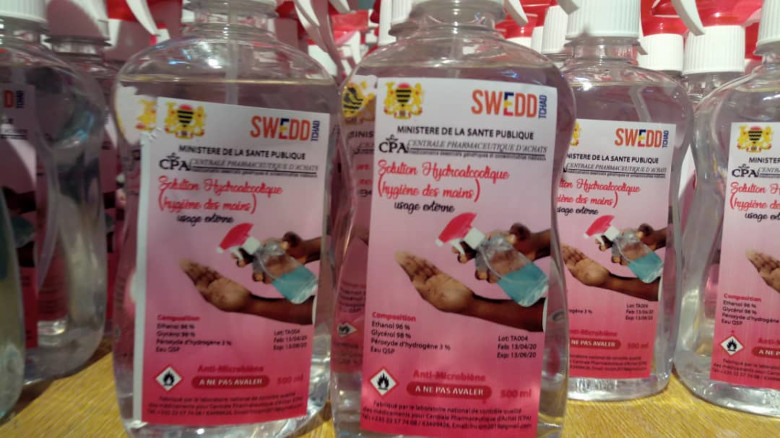N’DJAMENA, October 8, 2020 – “This production of hand sanitizer is a first for Chad and it has been a tremendous experience of which we are proud,” explained Dr. Al Sadick Haroun Abdallah, Technical Director at the Ministry of Health, wholeheartedly. And well he may. After all, his approval was key to his country’s production launch of this disinfectant solution that has been in such demand worldwide since the start of the coronavirus (COVID-19) pandemic. “We have managed to rapidly respond to the shortage and the soaring prices for the rare few bottles still on the market,” explained the fifty-year-old who is also in charge of the laboratory.
A global shortage
Manufacturers of face masks, gloves and hand gels were taken by storm worldwide right from the onset of lockdown measures by governments to check the spread of the virus. And N’Djamena was no exception to this sudden new normal straight out of a science fiction film.
The announcement by the World Health Organization (WHO) that frequent hand washing was the most effective protective measure against the disease triggered a rush on drugstores for hand sanitizers. People waited in line sometimes for hours to procure the alcohol-based sanitizer, which first appeared on the market just 20 years ago, so they could disinfect their hands anywhere at any time. “It’s the third time they’ve told me to come back, but every time I do, all the bottles are already sold out,” carped Ramat Abdoulaye, exasperated at leaving a large downtown drugstore empty-handed.
Some went so far as to cross the border to stock up in Kousseri, a Cameroonian city some 20 kilometers from N’Djamena on the opposite bank of the Logone River. Even those in the medical sector were left to their own devices to cope with the shortage. “With the shortage of gel in the country, we had to get organized, each in our own way, to make our own from the WHO formula to protect our staff in contact with customers,“ explained Dr. Raksala Masna, President of the Chadian Order of Pharmacists.



